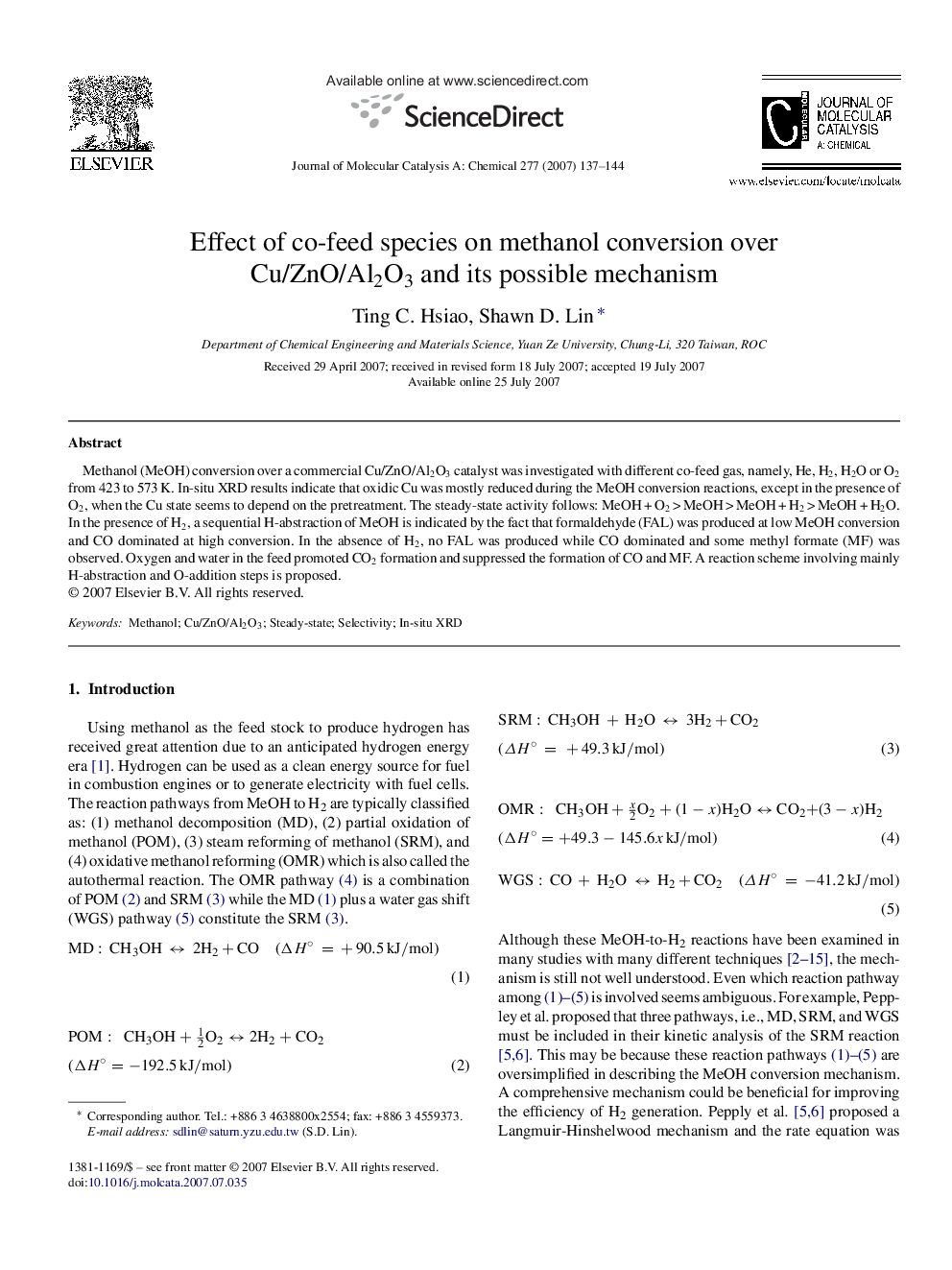| کد مقاله | کد نشریه | سال انتشار | مقاله انگلیسی | نسخه تمام متن |
|---|---|---|---|---|
| 67481 | 48484 | 2007 | 8 صفحه PDF | دانلود رایگان |

Methanol (MeOH) conversion over a commercial Cu/ZnO/Al2O3 catalyst was investigated with different co-feed gas, namely, He, H2, H2O or O2 from 423 to 573 K. In-situ XRD results indicate that oxidic Cu was mostly reduced during the MeOH conversion reactions, except in the presence of O2, when the Cu state seems to depend on the pretreatment. The steady-state activity follows: MeOH + O2 > MeOH > MeOH + H2 > MeOH + H2O. In the presence of H2, a sequential H-abstraction of MeOH is indicated by the fact that formaldehyde (FAL) was produced at low MeOH conversion and CO dominated at high conversion. In the absence of H2, no FAL was produced while CO dominated and some methyl formate (MF) was observed. Oxygen and water in the feed promoted CO2 formation and suppressed the formation of CO and MF. A reaction scheme involving mainly H-abstraction and O-addition steps is proposed.
Methanol conversion over a commercial Cu/ZnO/Al2O3 was examined with or without co-feed gas of H2, H2O or O2 from 423 to 573 K. The steady-state activity and product selectivity can be shifted reversibly using different co-feed species. A reaction scheme is proposed accordingly to explain the effect of co-feed species on the reaction performance of Cu/ZnO.Figure optionsDownload as PowerPoint slide
Journal: Journal of Molecular Catalysis A: Chemical - Volume 277, Issues 1–2, 16 November 2007, Pages 137–144